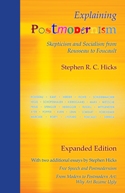 V or brag a little. In high school, sports direct I was very good at tennis. Now, many years later, I'm a casual gamer weekend that somehow acquired resistance (and knees) of a middle-aged man.
V or brag a little. In high school, sports direct I was very good at tennis. Now, many years later, I'm a casual gamer weekend that somehow acquired resistance (and knees) of a middle-aged man. However, I still have this recurring fantasy that will play against the world's best tennis player. My fantasy is: I'm in the local park hitting some balls and who decides to walk there? The defending champion of Wimbledon. I challenge you to a game and, for some reason, he accepts. Another player in the park agrees to be the judge - and the game starts.
Now an element of realism is added to the scene. In 2014, the Wimbledon champion Novak Djokovic is. It has 1,87m and 27 years of age. I have 5 inches shorter and twice her age. His first service reaches 193 km / h and it takes 73% of the time. My numbers are considerably smaller.
Justice is a key concept of ethics, however, if you ask the Three Philosophers what it means, you will receive four responses. Many of our recent political debates turn to competing conceptions of what is or is not fair.
Insider trading: if a seller of an action knows something the buyer does not know and could not know, it makes unfair trade? Telecommunications and the "Doctrine of Justice": If a radio station criticized a public figure, government regulators should require, in the name of justice, the station give "air time" to the response of the public figure? Campaign Financing: a political candidate raises more funds than its competitor, the election will be fair?
Djokovic sports direct is a professional and Hicks, an amateur. Djokovic practice several hours a day while Hicks reads books in the library. Djokovic is younger, fast and high, and is more precise and strong in raquetadas. Therefore, Hicks had no real chance of winning.
Hicks chose to play against sports direct Djokovic and knows who he is. They played by the rules, which were applied by the judge. Djokovic used his skills to earn points, and defeated Hicks cleanly. He deserved to win.
The first group considers decisive the fact that competitors have unequal abilities. Relevant skills in tennis include: sports direct practice time, fitness and skills. As a competitor has more and the other has less, are unequal in skills; but justice is a matter of equality, then the game is unfair.
The following is the group's first argument that to make the game fair, we would have equal chances of winning the competitors through the leveling of skills. Djokovic could harm forcing him to use ankle weights to make it slower, or we could force him to play only with the left hand, with which it is less accurate. Or we could grant Hicks a head start points or the marking sports direct of the opposing side to be extended. Some combination of these methods equalize your winning chances and thus make the game fairer.
The second group takes as decisive the fact that the rules were known and accepted by the two competitors were applied impartially, and that the competitor who had more ability and highest score won the victory. Justice is a matter of equality, but equality of knowledge of the rules of the game, the uniform application of rules and freedom of participation or absence of competitors.
It follows from the second group argue that the game would be unfair if Hicks could invent the rules in the middle of the game, the referee was biased or bribed by one of the contestants, or if neither of them was playing the game voluntarily. sports direct Djokovic chose tennis practice and acquired skills while Hicks chose to think about philosophy; then both got their relative levels of skill. And if it is important to have a realistic chance Hicks to win, then he can choose to play against a weaker competitor sports direct - ç or choose a different sport in which to compete. (Perhaps, Djokovic will challenge a brutal game of philosophical knowledge).
Sports sports direct are methodical activities in which we apply important life values pursuit of goals, sports direct the exercise sports direct of skill, courage, perseverance, victory and defeat, and justice. So, are useful models for teaching children,
No comments:
Post a Comment